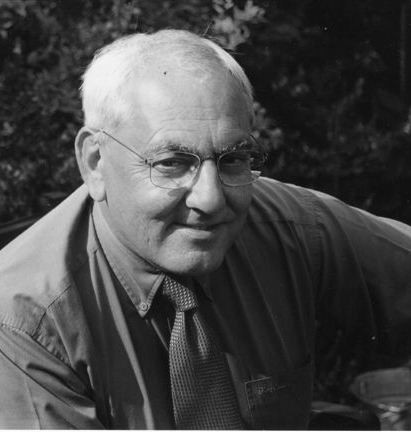In the past one year there has been a consistent commitment towards ridding the country of corrupt practices by not only prosecuting those involved in these practices but also attempting to recover stolen funds and debts.
The organisation saddled with the responsibility of recovering those debts, the Asset Management Company of Nigeria (AMCON), has left no stone unturned in ensuring that as much debts as possible is recovered for the benefit of economic growth and development.
In an exclusive interview with Kingsley Okeke and Chrys Anyanwu of African Leadership Magazine, the Managing Director AMCON Mr. Ahmed Kuru, opines how AMCON has fared in the past 6 years. Excerpt:
It’s been 6years since AMCON was established and it was set up to absorb toxic debts which almost crippled the economy around 2008. Looking back would you say AMCON has lived up to expectation?
A lot of Nigerians tend to forget why AMCON was set up. If you recall, during the global economic crisis businesses were failing and it was a global phenomenon. Governments all over the world came up with scenarios as to how to approach the crisis.
In Nigeria, AMCON is one of the vehicles that the government introduced at that time. It was realized that the banks were getting weaker as they were having issues with raising liquidity. The non-performing loan (NPL) ratio was more than 60% which means that 60% of funds trapped that the banks could not lend and that was accelerating at a very fast rate.
CBN then came out with the idea to set up an organisation to purchase those loans and release funding to the financial institutions so that they can lend money and jump-start the economy. On another side, some of the financial institutions beside the issue of bad loans they also have negative capital. Their net assets are negative and they are not strong enough even if you give them liquidity based on regulatory compliance. Some of the companies are also showing signs of distress and weakness especially in the oil and gas sector which is a key sector of economy.
AMCON intervenes by purchasing those bad loans and provides financial accommodation to some of the companies like in other countries of the world. We decided not to use the tax pay form but raise debt through bonds and have a stretch out period of 10 years within which the assets will be sold and then get money to pay back the debt.
Yes, AMCON has tremendously helped to stabilize the financial system and as you know the economic super structure rests on the financial system. Once the financial system is bad then there is nothing that can work again. The organisation has helped to provide strength, liquidity and balance for the financial institution.
The debt profile presently stands at about $25 billion. A lot of people have raised concern at this figure. What are some of the strategic measures being employed to recover these funds?
AMCON is governed by law. The law says “buy these debts with underlining assets where you cannot restructure them or dispose them”. But people always confuse the purchase of the non-performing loans from the banks.
At the time AMCON intervened, it purchased loans worth about 3.3 trillion naira and they paid 1.7 trillion for it. These loans have underlining collateral that ultimately if we sell will be used to pay back. On the other hand, we have financial accommodation. This means giving money to businesses to stabilize them because of the global economic crisis.
AMCON injected 2.2 trillion naira into banks like Intercontinental, Oceanic, PHB, Union bank, in order to bring their assets to positive position. In this, there is no purchase but an accommodation, although there is nothing to pay. But the projection based on the funding modal, it was agreed that since 1.7 trillion naira had been paid, the underlining assets are worth more than that and so if we keep those assets and the economy turns around over a period of time, there will be appreciation of those assets enough to be able t5o accommodate the 2.2 trillion naira.
Every year AMCON contributes certain percentage of the balance sheet into a sinking factory for as long as these amounts get outstanding and it is fully paid. This means that there should not be a situation where AMCON relies on tax payers’ money to pay its debts. Globally, once loans are purchased the underlining assets, automatically becomes that of the asset management company. Here, it is different because of the peculiarity of our constitution.
Asides categorizing assets into portfolios, we are creating the Real Estate Investment Programme (REIP) where we can collect and sell assets as a product, raise liquidity, and whoever is buying will keep it for 5 to 10 years. By then, the value would have picked up and we can now dispense and everybody will be happy.
Experts have blamed poor management and bad leadership for the debt problems faced in the country. Is there anything the organisation is doing to strengthen the level of expertise within?
There are still a lot of misconceptions. When AMCON purchases these facilities from the banks, they set out to purchase non-performing loans (bad loans) and that is why AMCON is referred to as the “bad bank”. There is the assumption that because Bank A has sold its loans to AMCON, the loan will automatically start performing. These loans are bad, so AMCON takes the loans and gives a percentage of the money to the bank and then holds the loan while it finds a 2way to restructure it. AMCON is particularly looking at the underlining assets. Some of the businesses where AMCON is directly involved is a situation where we have seen the light at the end of the tunnel and agreed on a framework, as well as suggest professionals who are not AMCON staff to come and manage the business, for instance, Aero airlines.
We do not manage businesses, we only find out how we can get our money back. In other words, we are interested in the cash flow of the business. Our strategy is “sell the assets and recover your money”. We sell to competent people who understand the industry and can bring liquidity. AMCON is just an asset management organisation and not a manager of businesses.
What level of support have you received from sister agencies on the one hand, and from the government on the other hand?
Without the support of some government agencies we may not be able to do our work. The difference between the EFCC and AMCON is that while they are looking at financial crime, we look at debt recovery. This means that our enforcement unit must be strong, the legal unit must be strong, and the credit unit must be strong. Whether we like it or not government support is very key to the success of AMCON. Giving what I have seen here, if it was not for the President I would not do this work. The support and body language of government is key and the position of the government on certain issues is also very key otherwise one cannot move an inch in this work. But I can tell you that we are working. The president has established a pattern and everybody has seen it and must comply. Most of the people that have taking money are very rich and their lifestyle does not conform to the debit balance that they have so you need the backing of a strong government to be able to work.
The President has also set up inter-agency committee for the first time. The Attorney-General of the Federation is chairing the committee and heads of key security and financial agencies are members of the committee. This is a law abiding government.
What is the strategy on ground to support the employment drive?
AMCON harbours more than 12,000 businesses. What we have done to help is to set up asset management partners whose intention is to create an avenue where accountants, lawyers and bankers that are out of work can form a partnership and can come to AMCON and then we will firm up certain accounts for them for the purpose of management and recovery. We are training them and also paying them some fees and commissions to support.
AMCON has been providing financial accommodation for many businesses that we believe are too big to fail or too small and require support.
Are there ways that AMCON can provide advice for businesses?
Our act allows us to do anything but let us not forget that a good number of these businesses are already dead. Some of the assets can be turned around if professionals are brought in. The general mentality however, is that the owners of such businesses do not want to let them go even when he/she doesn’t have what it takes to manage the business. We have professionals who can turn those businesses around.
What are some of the specific things you wish to contribute to the change agenda?
The greatest problem of Nigeria is impunity. What needs to be done has become routine because it has been repeated over and over. Impunity and good leadership is the solution. We must do things differently and with impunity rather than face the negative consequence. This is why the President is spending so much time building institutions and so if an individual cannot fit into the institution, he will be flushed out of the system. All we are trying to do here is to make sure things are done correctly. There is the urgent need for paradigm shifts of our mindset such that without any pressure from law enforcement officers, we can do what is right and this is what I see in the action of the President. I believe the President represents that shift.
The issue with leadership in Africa is complicated but Nigeria as the big brother must set the standard. If we sustain the current leadership and change perception, other African countries will emulate the system. We need to see things differently and support the current change to do what is right. This is a blessed country with fantastic potentials.



